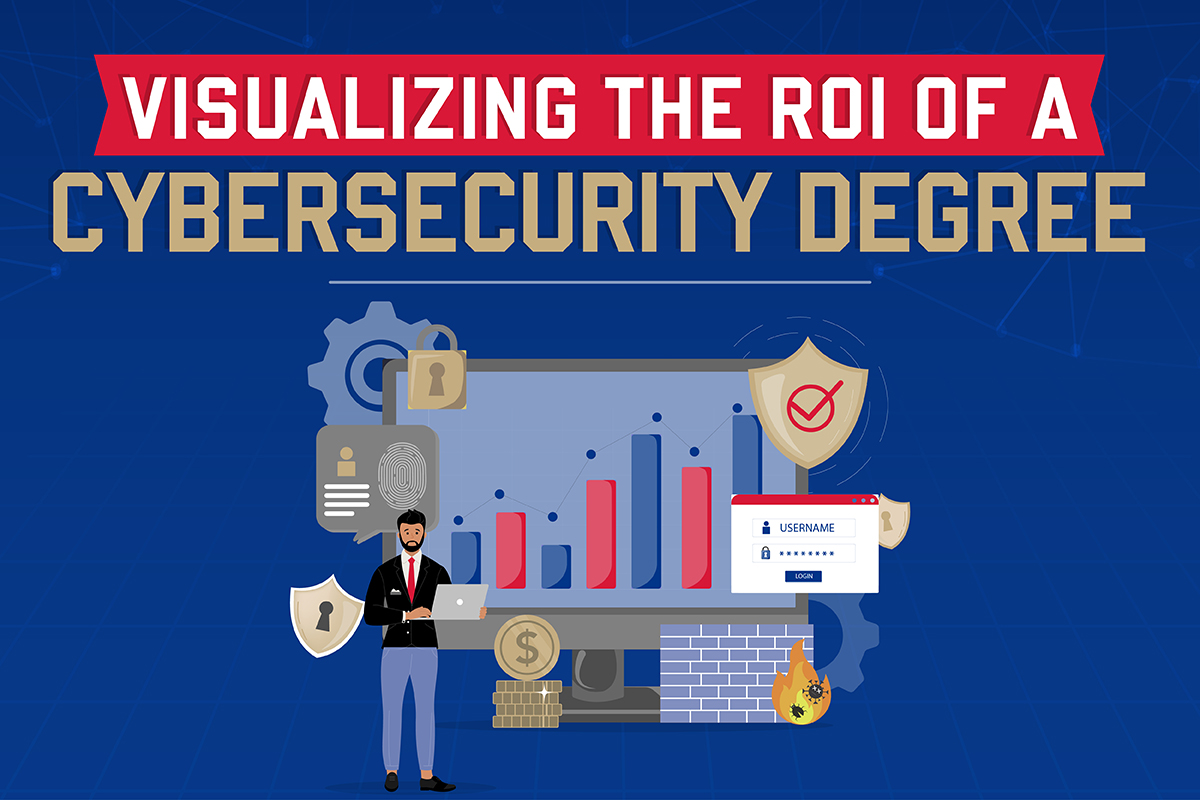Data Privacy Officer: Job Description and Salary
Written by:
University of Tulsa
• Jan 29, 2025

During a time when data breaches and privacy concerns dominate the headlines, the role of data privacy officer (DPO) has become essential for organizations across industries. A DPO ensures that companies comply with data protection laws; safeguard sensitive information; and build trust with stakeholders, especially customers. As guardians of privacy, these professionals play a critical role in helping businesses navigate the complexities of data security regulations, such as the California Consumer Privacy Act (CCPA) and the EU’s General Data Protection Regulation (GDPR).
DPOs oversee data protection strategies, conduct audits, manage data breaches, and advise on privacy issues. Industries such as finance, health care, and technology often rely on DPOs, and the role requires a strong educational background in law or data protection, along with relevant certifications and experience in privacy management. Salary expectations for DPOs vary by region, but the role is seeing significant job growth as data privacy becomes more critical.
If you’re considering a career in data privacy, learn exactly how to prepare for this rewarding and rapidly growing field.
Core Responsibilities of a DPO
DPOs are responsible for ensuring that organizations comply with data protection laws, including the GDPR and CCPA.
Their primary purpose is to safeguard sensitive information, mitigate privacy risks, and promote a culture of data protection across an enterprise.
The key responsibilities of a DPO center on developing and implementing comprehensive data protection policies and procedures to comply with regulatory requirements. They conduct privacy impact assessments and audits to identify vulnerabilities and ensure ongoing compliance. DPOs play a vital advisory role, guiding leadership and employees on best practices for managing personal data securely.
In the event of a data breach, the data privacy officer leads the response efforts, coordinating with regulatory authorities and managing communication with affected parties. As the primary contact on data subjects and for regulatory bodies, the DPO seeks to ensure transparency and trust in the company’s privacy practices.
Day-to-Day Duties and Work Environment
The daily responsibilities of a DPO revolve around maintaining compliance with privacy regulations and protecting sensitive data.
Typical responsibilities include the following:
-
Reviewing and updating privacy policies to align with evolving regulations
-
Monitoring data flows to ensure the secure handling of personal information
-
Addressing compliance-related questions from employees, executives, and stakeholders
-
Conducting risk assessments and overseeing privacy audits
-
Managing incident response plans in case of data breaches
DPOs Work in Diverse Environments
The key areas and industries where DPOs are employed include the following:
-
Corporate Offices: Working in technology companies, financial institutions, and retail businesses
-
Health Care Organizations: Ensuring patient data privacy and compliance with the federal law restricting the release of medical information
-
Government Agencies: Managing sensitive public data
-
Consulting Firms: Advising multiple clients on data protection strategies
Collaboration is a key aspect of the role, as data privacy officers work closely with information technology (IT) teams to secure systems, legal teams to interpret regulations, and human resources (HR) departments to train staff on data privacy protocols.
Industries Hiring Data Privacy Officers
DPOs are in high demand across a wide range of industries as organizations prioritize data protection.
Technology and software development companies often employ DPOs to secure user data and comply with global privacy regulations. Financial services and e-commerce businesses rely on these professionals to safeguard sensitive banking and credit card information. In the health care and pharmaceutical industries, DPOs ensure compliance with privacy laws while protecting patient data and confidential information.
Furthermore, educational institutions and government agencies require privacy expertise to manage sensitive records and meet regulatory requirements.
The universal need for this profession underscores the growing importance of DPOs in today’s data-dependent economy.
Education and Experience Requirements
To become a successful DPO, candidates typically need a strong educational foundation and extensive professional experience. Most hold degrees in fields such as:
-
Computer Science: Provides technical knowledge of systems and data management
-
Law: Offers expertise in navigating privacy regulations, such as the GDPR and CCPA
-
Information Security: Focuses on safeguarding data and preventing breaches
-
Business: Develops strategic and managerial skills critical for privacy oversight
Certifications can significantly enhance an aspiring DPO’s qualifications, demonstrating specialized knowledge. The most sought-after certifications include the following:
-
Certified Information Privacy Professional (CPP)
-
Certified Information Privacy Manager (CIPM)
-
Certified Information Systems Security Professional (CISSP)
Relevant professional experience is equally important. Employers typically look for backgrounds in:
-
Compliance or legal roles, ensuring familiarity with regulatory frameworks
-
IT or cybersecurity positions, providing technical expertise
-
Risk management, emphasizing the ability to identify and mitigate vulnerabilities
According to the IAPP, there’s a 30% year-on-year increase in demand for privacy professionals. Furthermore, the association reports that many job candidates receive multiple job offers within a week. Stricter regulations and escalating data privacy concerns are driving demand. Strong communication skills, knowledge of privacy laws, and data analysis capabilities are key to succeeding in this rapidly expanding field.
Salary and Job Growth Information
The salary for a data privacy officer can vary significantly depending on factors such as location, industry, and experience.
The average base salary of a DPO in 2023 was approximately $146,200, according to the IAPP. Salaries tend to be higher in industries such as technology, finance, and health care, with technology companies offering competitive compensation to attract top talent.
Job growth in the field is very promising. The U.S. Bureau of Labor Statistics (BLS) predicts a 33% increase in positions for information security analysts, including DPOs, between 2023 and 2033. This reflects the rising demand for professionals who can manage and protect personal data in an increasingly digital world.
Pursue a Career as a Data Privacy Officer
Becoming a DPO is a rewarding career choice for those passionate about safeguarding personal information and ensuring regulatory compliance. Furthermore, with high demand across sectors and competitive salaries, the career offers long-term opportunity and growth.
The first step, however, is getting the foundation you need to thrive in the field.
If you’re looking to advance in your organization or transition to the cybersecurity field, now is the time to pursue a degree at The University of Tulsa. TU’s online Master of Science (M.S.) in Cyber Security is available with both technical and leadership tracks and will help you build theoretical and practical knowledge that is key to protecting organizations from attacks.
This fully online program is ideal for busy professionals who want to take the next step. Learn more about the program, and discover how it can help you achieve your goals.
Recommended Readings
11 IT Security Tools for Cyber Professionals
5 Blockchain Careers to Consider
Sources:
IAPP, “Demand for Privacy Professionals Soars in ‘Dynamic,’ ‘Cross-Functional’ Field”
IAPP, 2023 IAPP Privacy Professionals Salary Survey
Kiteworks, What Does a Data Privacy Officer (DPO) Do?
Osano, Data Privacy Laws: What You Need to Know in 2025
U.S. Bureau of Labor Statistics, Information Security Analysts


